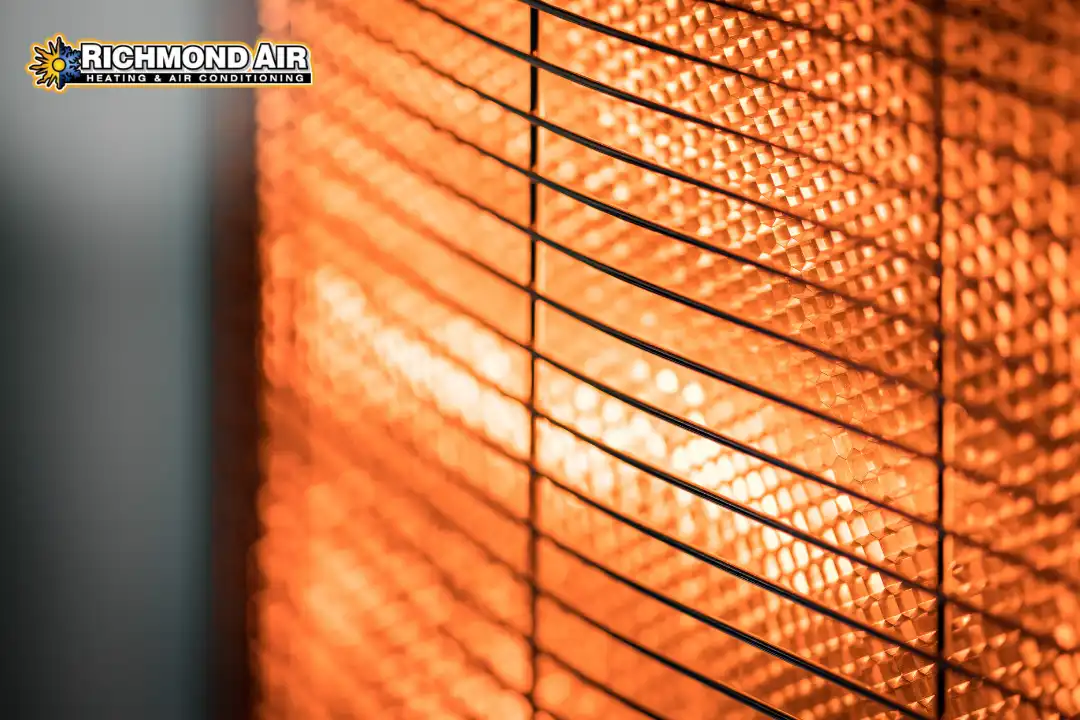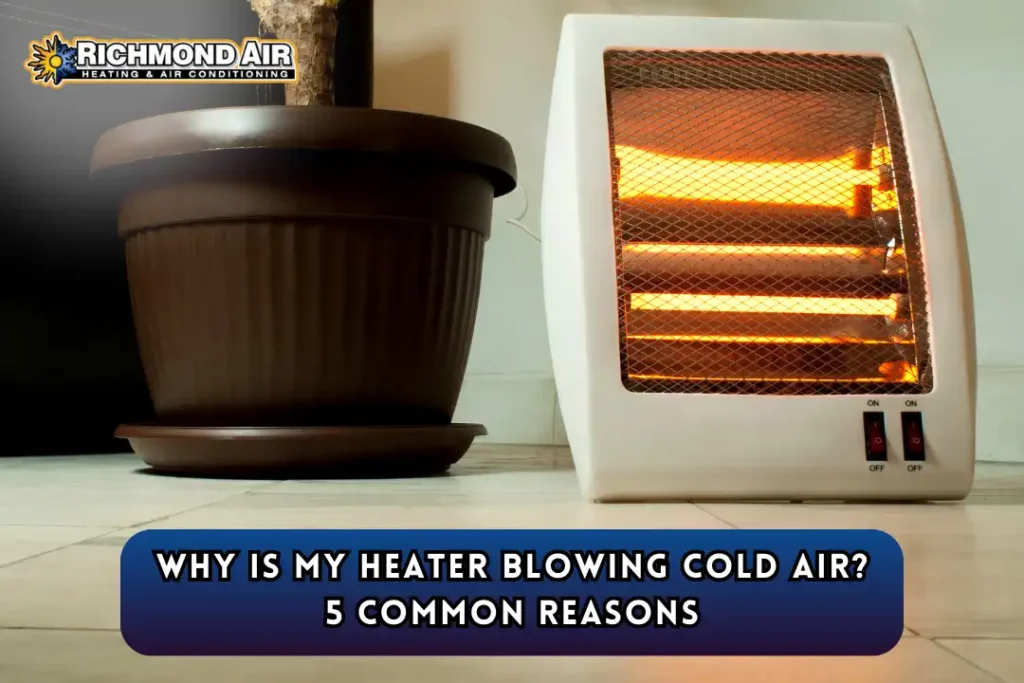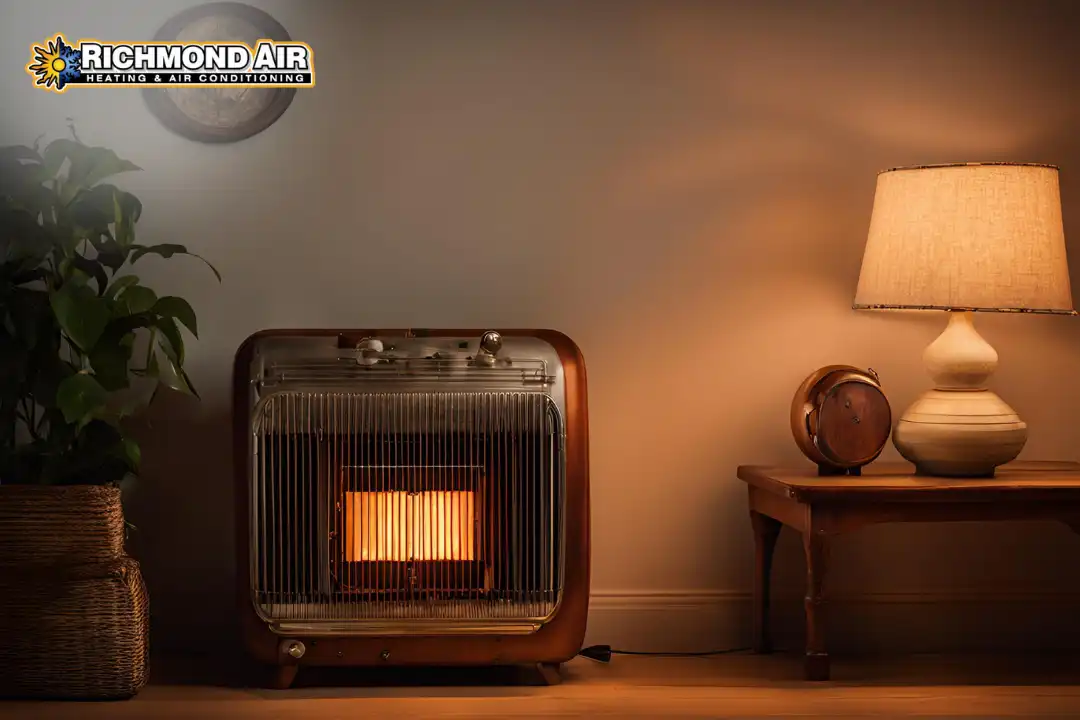Ah, the classic case of the heater playing peek-a-boo, If your heater keeps turning on and off, it’s likely experiencing what the pros call “short cycling.” This isn’t just your heater being indecisive; it’s a sign that something’s up. Let’s get into the possible culprits and fixes so you can stop feeling like you’re living on a weather rollercoaster.
Why Does My Heater Keep Turning On and Off
Your heater keeps turning on and off due to issues like:
- Dirty air filter
- Faulty thermostat
- Blocked vents
- Oversized heater
- Dirty flame sensor
- Electrical issues
- Overheating
- Faulty limit switch
- Pilot light or ignition issues (for gas heaters)
- Clogged or blocked flue
When to Call in Reinforcements
If you’ve tried the DIY fixes and your heater is still playing the on-off game, it’s time to call in an HVAC technician. They’ll diagnose the issue and get your heater back to its cozy, consistent self.
Remember, a short-cycling heater isn’t just annoying. It’s also inefficient and can lead to higher energy bills. So, don’t let your heater’s indecision leave you in the cold (or sweating). Get it sorted, and you’ll be back to enjoying a steady stream of warmth in no time!
Signs That Your Heater May Be Short Cycling or Turning Off and On
Recognizing the signs of short cycling early can save you from costly repairs and ensure your home stays warm and comfortable. Here are some common indicators that your heater might be short cycling:

- Frequent On-and-Off Cycles: If your heater turns on and off every few minutes instead of running for longer, consistent cycles, this is a clear sign of short cycling.
- Uneven Heating: Rooms in your home may feel colder or warmer than others because the heater isn’t running long enough to distribute heat evenly.
- Higher Energy Bills: Short cycling forces your heater to work harder, using more energy than necessary. If you notice a sudden spike in your energy bills, short cycling could be the culprit.
- Unusual Noises: A heater that’s short cycling may produce strange sounds, such as clicking or banging, as it repeatedly starts and stops.
- System Overheating: If your heater shuts off abruptly and feels excessively hot, it may be overheating due to restricted airflow or other issues.
If you notice any of these signs, it’s important to address the problem promptly. Ignoring short cycling can lead to further damage and reduce the efficiency of your heating system.
How to Prevent Your Heater from Short Cycling
The U.S. Department of Energy (DOE) emphasizes the importance of regular furnace maintenance to enhance efficiency and extend the lifespan of your heating system. Neglecting routine maintenance can lead to issues like clogged filters and thermostat malfunctions, which may result in problems such as short cycling. Regular maintenance helps prevent these issues, ensuring your furnace operates efficiently and effectively. Here are some proactive steps you can take to avoid this frustrating issue:
- Regular Maintenance: Schedule annual maintenance with a professional HVAC technician. They’ll inspect, clean, and tune up your system to ensure it’s running
- efficiently and catch potential problems before they escalate.
- Change Air Filters Frequently: A dirty air filter is one of the most common causes of short cycling. Check your filter every 1-3 months and replace it as needed to maintain proper airflow.
- Ensure Proper Thermostat Placement: Make sure your thermostat is installed in a central location, away from heat sources, direct sunlight, or drafty areas. This ensures accurate temperature readings and prevents unnecessary cycling.
- Keep Vents and Ducts Clear: Blocked vents or dirty ducts can restrict airflow, causing your system to overheat. Regularly clean and inspect your vents and ducts to keep air moving freely.
- Invest in the Right-Sized Heater: If you’re replacing your heater, consult an HVAC professional to ensure the unit is properly sized for your home. An oversized heater can lead to short cycling.
By following these tips, you can keep your heater running smoothly and avoid the hassle of short cycling altogether.
If your heater keeps turning on and off, don’t ignore the problem, it could lead to higher energy bills and unnecessary wear on your system. Try the simple fixes mentioned above, like cleaning the air filter or checking the thermostat. If the issue persists, it’s best to call a professional HVAC technician to diagnose and resolve the problem. A properly functioning heater means better comfort, efficiency, and peace of mind. Don’t wait; take action today to keep your home warm and cozy all season long.
Final Thoughts
In conclusion, if your heater keeps turning on and off, it’s likely due to short cycling caused by issues like a dirty air filter or thermostat problems. While some fixes are simple, others may require a professional to ensure your system runs efficiently. Addressing the root cause early can save you from higher energy bills and costly repairs in the future.
FAQs
Why Does My Heater Keep Turning On and Off
If your furnace keeps turning on and off without you expecting it, there’s a good chance your HVAC system is having some issues. One common reason is short cycling, which happens when the heat gets trapped inside the system. This could be because of a malfunctioning air handler or a clogged air filter that messes up the airflow. Without proper airflow, the system just can’t pump out heat the way it should, causing it to turn on and off. It’s like the furnace is getting too hot and shutting down to cool off, only to start again once it gets too cold. This back-and-forth can waste a lot of energy, so it’s important to keep an eye on your system. A quick fix like changing the air filter might just do the trick!
Why Does My Heater Keep Cutting In and Out
If your heater is shutting off unexpectedly, you might be dealing with low airflow. Sometimes, a dirty air filter or a clogged filter can restrict the airflow, causing the furnace to overheat and turn off to prevent damage. Overheating is another reason this happens, as your system is trying to keep things safe. So, next time your heater cuts in and out, check the filters to make sure they’re clean. It could solve the issue, and your furnace will run smoothly again.
Why Does My Heater Turn Off Then Right Back On
If your heater turns off and then right back on, it might be because of overheating. The system could be getting too hot and shutting down as a safety measure. Another reason could be a faulty thermostat that is sending incorrect signals, causing it to shut off prematurely. And of course, if there’s a clogged air filter, it can restrict airflow and cause the furnace to overheat. So, if this is happening often, give the thermostat and filters a check to avoid constant on-and-off cycles.
How Do I Stop My Furnace from Short Cycling
If you notice your furnace is short cycling, the first thing you should do is check and replace the air filters if they’re dirty. Regular filter maintenance is key to ensuring proper airflow, which will keep your furnace running smoothly. If the airflow is blocked, the furnace won’t work efficiently and will keep shutting off. Keeping your furnace clean and maintaining it can help improve its efficiency and prevent the dreaded short cycling.
Why Does My Furnace Run for 5 Seconds Then Shut Off
A dirty HVAC air filter is one of the biggest causes of short cycling, where your furnace runs for a few seconds and then shuts off. Sometimes, a faulty flame sensor can also cause it to shut off immediately, but most of the time, it’s the dirty filter that allows the furnace to run for a while and then shut down. If you notice this happening, it’s time to clean or replace the filter. Once it’s clean, your furnace should be able to run smoothly for longer periods.



